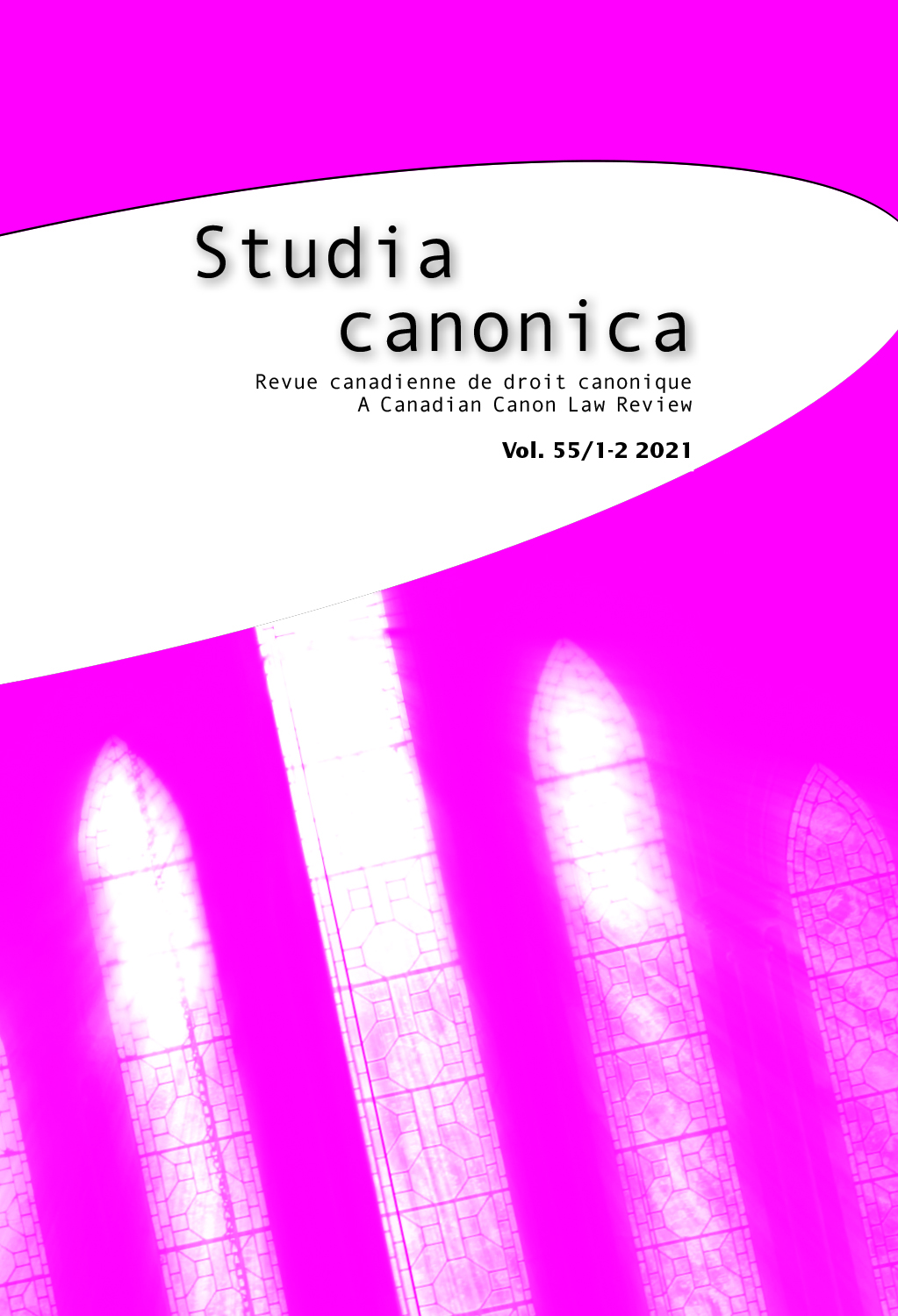 previous article in this issue previous article in this issue | next article in this issue  |

Preview first page |
Document Details : Title: Medellín as Synodal Event Subtitle: The Genesis and Development of a Collegial Ecclesiality Author(s): LUCIANI, Rafael Journal: Studia Canonica Volume: 53 Issue: 1 Date: 2019 Pages: 183-208 DOI: 10.2143/STC.53.1.3287027 Abstract : The creation of the Latin American Episcopal Council (CELAM) represented a unique reception of the Second Vatican Council, positioning the Latin American Church as a Source Church for today’s process of reforms. This Council not only created a collegial way of interacting at a continental level but also inaugurated a way of being and working and a mode of interaction that gave birth to a way of proceeding that would characterize the Latin American Church’s own identity. The Latin American General Conferences, hosted by CELAM, such as Medellín (1968), Puebla (1979), Santo Domingo (1992), and Aparecida (2007), cannot be reduced to mere texts. In the specific case of Medellín (1968), the way in which this Conference proceeded, more environmental than thematized, gave rise to a spirit of prophetic convergence among bishops, priests, religious, and laypeople that took shape in the method of work, the relationships among the participants, the organization of the daily liturgy, the disposition for listening and having open discussions, and the way of redacting the final documents. All this inaugurated a unique ecclesiality inspired by a collegial practice and completed by a Synodal Spirit that advanced the ecclesial model of People of God of the Second Vatican Council. This Spirit of Synodality, inaugurated by the Latin American Church and supported by Pope Paul VI, is renewed and advanced today by Pope Francis as a new way of being Church. La création du conseil épiscopal latino-américain (CELAM) a constitué une réception unique du Concile Vatican II, positionnant l’Église latino-américaine en une Église source pour le processus des reformes actuelles. Ce Conseil, non seulement a créé une manière collégiale d’interagir au niveau continental, mais aussi, a inauguré une manière d’être, de travailler et un mode d’interaction qui a donné naissance à une manière de procéder qui caractérisera l’identité propre de l’Église latino-américaine. Les conférences générales latino-américaines, organisées par le CELAM, telles que Medellín (1968), Puebla (1979), Santo Domingo (1992) et Aparecida (2007), ne peuvent être réduites à de simples textes. Dans le cas spécifique de Medellín (1968), la manière plus environnementale que thématique avec laquelle cette conférence a procédé, a suscité un esprit de convergence prophétique parmi les évêques, les prêtres, les religieux et les laïcs. Ceci a pris forme dans la méthode de travail, dans les relations entre les participants, dans l’organisation de la liturgie quotidienne, dans la disposition à l’écoute, aux discussions ouvertes et dans la manière de rédiger les documents finaux. Tout ceci inaugurait une ecclésialité unique inspirée par une pratique collégiale et complétée par un esprit synodal qui a fait avancer le modèle ecclésial du peuple de Dieu du Concile Vatican II. Cet esprit de synodalité, inauguré par l’Église latino-américaine et soutenu par le pape Paul VI, est aujourd’hui renouvelé et proposé par le pape François comme une nouvelle façon d’être Église. |
|


